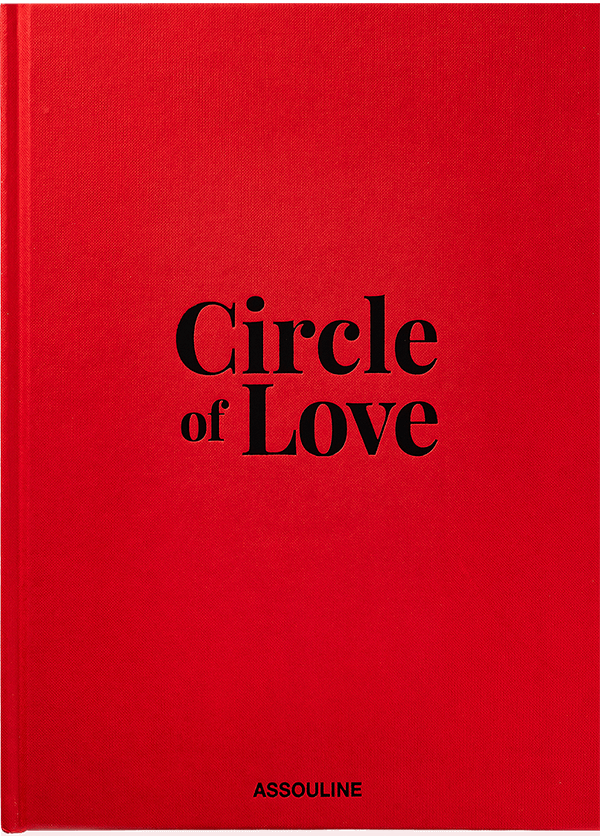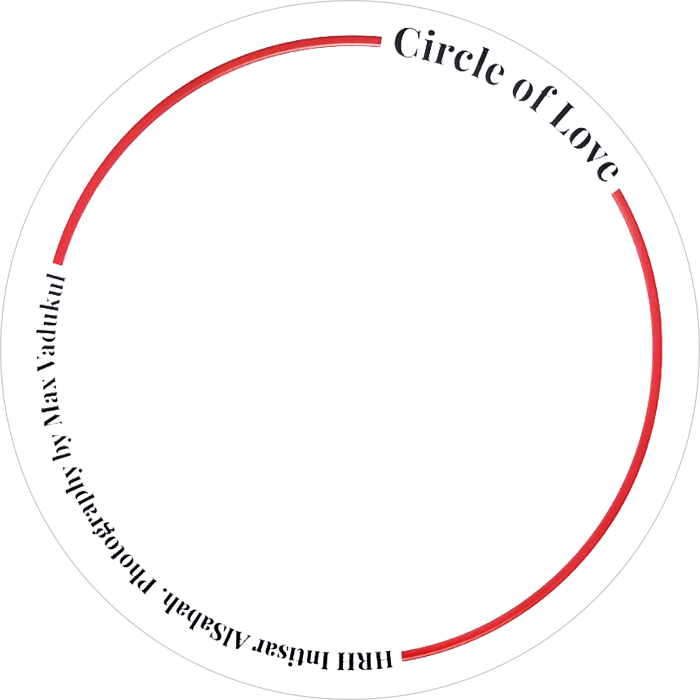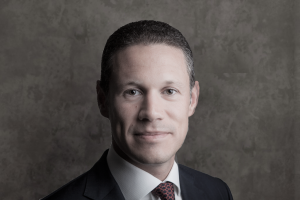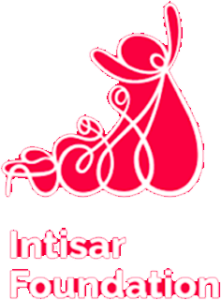X


Badr Jafar is the CEO of Crescent Enterprises, President of Crescent Petroleum, and Founder of the Pearl Initiative.

“Philanthropy in the Arab world is no longer confined to individual acts of charity.
We are now witnessing the evolution of strategic philanthropy, where donors and organizations are looking beyond short-term alleviation and aiming for sustainable, systemic change. This shift is not only promising but essential for addressing the complex challenges our region faces today.”
You have been quite active in elevating and promoting philanthropic work and creating a culture of transparency and good governance within the Arab region. What would you like our audience to know about philanthropy in the Arab region?
We have a long history of charitable giving in the MENA region and the broader Islamic world. Today, anywhere between US$400 billion to US$1 trillion is disbursed annually between Zakat and Sadaqa, surpassing global humanitarian and development aid budgets threefold. However, philanthropy in the Arab world is no longer confined to individual acts of charity. We are now witnessing the evolution of strategic philanthropy, where donors and organizations are looking beyond short-term alleviation and aiming for sustainable, systemic change. This shift is not only promising but essential for addressing the complex challenges our region faces today.
Creating a culture of transparency and good governance within the philanthropic sector is paramount for this evolution to continue. Transparency builds trust, which is fundamental to any successful philanthropic initiative. Good governance ensures that resources are used effectively and that organizations are held accountable for the impact they create.
There is no shortage of philanthropists eager to make a social impact with their capital in the region. By working together as individual philanthropists, corporate and institutional donors, we can remain focused on the strategic, transparent deployment of philanthropic capital to deliver lasting results for all. Now is the time to ensure we maximise our impact by effectively building a closer community of philanthropic donors to share knowledge, experience, and purpose.
Can you share your thoughts around where you think the region is today versus where it was 15 years ago with regards to Philanthropy and the role it plays in supporting society?
It is estimated that more than US$5 trillion of wealth in the top 30 growing economies, which includes the MENA region, will be passed from one generation to the next within the next decade. This suggests a substantial increase in philanthropic activities within these societies in the near future.
This next generation of philanthropists is reshaping the practice of giving by demanding more hands-on approaches and embracing boundary-blurring innovations to achieve greater impact. They aim to align their philanthropic endeavours with national priorities, giving philanthropy a greater role to play in shaping the future of strategic giving in the Arab region.
This underlines the need for greater transparency and accountability to ensure philanthropists can correctly measure their impact over time. Emerging digital tools and platforms are making giving significantly more accessible, and disruptive technology is enabling the gathering, processing, and understanding of philanthropic data more efficiently than ever before.
The Arab region is renowned for its generosity, presenting a huge opportunity to establish the necessary structures and platforms to nurture a new generation of philanthropists and philanthropic ventures by forging partnerships with government and business sectors to address our most urgent challenges using the principles of strategic philanthropy that is transparent in its application and results-driven.
You have established a number of strategic philanthropy centres in different regions around the world. What is the motivation behind these initiatives?
The overall motivation for establishing these strategic philanthropy centres is to enhance the impact of philanthropic capital within the regions themselves, but also as it is dispersed to the rest of the world. Philanthropists from across the MENA region and other emerging markets, such as Latin America, Sub-Saharan Africa, and developing Asia, are becoming increasingly active on a global scale, contributing significant funds towards global causes. The strategy behind these is based on a 3-pronged approach:
To start with, Research is a fundamental pillar. We aim to invest in understanding strategic philanthropy better and addressing knowledge gaps within the field. The goal is to create a repository of data and case studies, accessible to everyone, that can help guide decision-making and strategy development for philanthropic investments. We believe in learning not only from each other’s successes but also from our mistakes.
Secondly, these centres serve as a Convening platform, fostering collaborations and partnerships. The objective is not just about co-investing funds, but about building a network of like-minded individuals and organisations who can share ideas, practices, and resources. The centres aim to be hubs for these dialogues, facilitating connections that might not otherwise have been made and catalysing the potential for a multiplier effect.
Finally, Education is an essential aspect of our mission. We aspire to develop capacity within the philanthropic sector, offering training programs, workshops, and seminars. These initiatives serve to equip both new and established philanthropic communities with the skills and understanding they need to make more effective and impactful contributions.
The Intisar Foundation is the only one of its kind in the region today. You have launched several arts and music ventures over the years, including the Middle East Theatre Academy and a music collaboration with the legendary Quincy Jones, namely the BOKRA project, to support Arab talent – why are the arts important to you and what synergies do you see in the work of the Intisar Foundation and your various ventures?
The arts have always held a deep personal significance for me, but I truly believe in their collective power to unify, inspire, and drive positive change, which is why they form a significant part of my initiatives. Artistic mediums transcend borders and cultures, they foster understanding and promote dialogue in ways that few other platforms can.
The Middle East Theatre Academy and the BOKRA project are emblematic of this belief. The Middle East Theatre Academy, for example, provides a platform for young people across the region to explore and express themselves. It uses drama to instill confidence, resilience, and a sense of self-worth in these young people. They learn not just about the art of theatre, but also about teamwork, discipline, empathy, and creative thinking.
Similarly, the BOKRA project is about empowering Arab talent, providing them a platform to express themselves and tell their stories to a global audience. It was not just about creating a hit song, but about fostering a sense of resilience, hope, and unity among the youth in the Arab world.
The Intisar Foundation shares this ethos. It uses drama therapy as a powerful tool to empower Arab women, providing them a safe space to express, process, and overcome personal challenges. Just like with the Middle East Theatre Academy and the BOKRA project, the idea is to leverage the transformative power of the arts to build resilience and instill confidence.
By fostering the arts and championing local talent, we are also nurturing the creative economy of the region. This in turn stimulates innovation, job creation, and economic growth. Each initiative then becomes a spoke in a larger wheel driving social, economic, and cultural development for the region. The ambition is to use the arts as a powerful tool to transform individuals, communities, and ultimately, societies. Art has the power to change the world, and it is a privilege to contribute to that process.
“Systemic change is not something that can be brought about single-handedly. It requires a concerted and collaborative effort from a wide range of stakeholders – from other philanthropic entities, governments, the private sector to civil society. By forging alliances and partnerships, we can amplify the reach and impact of our initiatives significantly.”
HH Sheikha Intisar insists that her philanthropic capital must be used effectively and for maximum impact to bring about systemic sustainable change for Arab women. What advice do you have for philanthropic organisations today that are working at this intersection?
I wholeheartedly support HH Sheikha Intisar’s emphasis on strategic philanthropy to instigate systemic, sustainable change for Arab women. For philanthropic organisations operating in this space, I believe several principles can guide their work. Foremost among these is the importance of collaboration. Systemic change is not something that can be brought about single-handedly. It requires a concerted and collaborative effort from a wide range of stakeholders – from other philanthropic entities, governments, and the private sector to civil society. By forging alliances and partnerships, we can amplify the reach and impact of our initiatives significantly.
Equally crucial is the focus on empowerment. There is a need to go beyond temporary alleviations and focus on creating lasting change. This entails developing capacities, fostering education and personal growth, and equipping individuals with the tools and resources needed to improve their own lives. When we empower individuals, we’re not just addressing immediate needs, we’re also planting the seeds for sustainable, long-term change.
Measuring impact is another vital aspect. Philanthropic organisations must consistently assess the effectiveness of their strategies and the impact of their initiatives. This involves not only monitoring the outcomes but also analysing what works, what doesn’t, and identifying areas where improvements can be made. With effective measurement and evaluation, we can ensure the efficient use of resources, driving maximum impact.
Lastly, there is a continuous need to embrace innovation and adaptability. We live in a dynamic world, and our approach to problem-solving needs to evolve and innovate in sync. Whether that entails leveraging technology or exploring novel methods to address persistent issues, innovation needs to be at the core of our work.
“I would emphasize the significance of education. Not only formal education but also in terms of awareness raising and capacity building. Education is the key to empowerment. It enables individuals to better understand their rights, make informed decisions, and stand up against discrimination. Similarly, prioritising mental health education and promoting awareness is vital in fostering understanding and combating stigma.”
What advice would you offer to philanthropic organisations from the Arab world in 2023, especially those working at the intersection of women’s empowerment and mental health such as Intisar Foundation?
When we consider sharing advice with philanthropic organisations, the focus should consistently be on impact. Strategic philanthropy, at its core, is about utilising resources in a tactical and efficient way to create measurable, positive change. we must also not underestimate the economic case for investing in women’s empowerment and mental health. Global GDP could gain a minimum of US$7 trillion each year by closing the gender gap in the workforce. Furthermore, according to the World Health Organization, mental health conditions cost the global economy US$ 1 trillion each year predominantly from reduced productivity. Recognising the substantial economic benefits of investing in women is paramount.
From my personal perspective, I believe there are several key areas that philanthropic organisations focusing on topics as important as women’s empowerment and mental health should concentrate on as we proceed through 2023 and beyond.
Firstly, organisations need to embrace local cultures and traditions while simultaneously challenging any existing societal norms that may be contributing to gender inequality or stigmatisation of mental health. Arab women have unique experiences and challenges that are shaped by the region’s distinctive cultural context. Initiatives must be grounded in this reality while progressively aiming for equality and inclusivity. There is a need to promote open dialogue about mental health and women’s rights, gradually reducing the stigma and paving the way for sustainable change.
A second essential area of focus should be fostering collaboration and partnerships. It is important to actively seek partnerships with like-minded organisations, local communities, governments, educational institutions, and businesses. Collaboration can help organisations pool resources, share knowledge, and amplify their voices. It encourages the exchange of best practices and innovative ideas, and it enables organisations to build synergies and tackle challenges more effectively.
Thirdly, organisations need to place a high premium on research and data collection. The power of strategic philanthropy lies in its focus on evidence-based decision-making. Data helps to understand the challenges, design effective policies, measure progress, and ensure accountability. Especially in areas often clouded by misconceptions such as women’s issues and mental health, robust research can be transformative.
Lastly, I would emphasize the significance of education. Not only in formal education but also in terms of awareness raising and capacity building. Education is the key to empowerment. It enables individuals to better understand their rights, make informed decisions, and stand up against discrimination. Similarly, prioritising mental health education and promoting awareness is vital in fostering understanding and combating stigma.

Officially registered as a humanitarian organisation with the Charity Commission for England and Wales in 2019, Intisar Foundation is the first charitable organisation in the Middle East dedicated to providing psychological support programmes of drama therapy to Arab women affected by the brutality of war and violence.
Intisar Foundation
McCarthy Denning, Suite 102,
70 Mark Lane, London, EC3R 7NQ
UK Registration Charity Number: 1182384
Leave a Reply